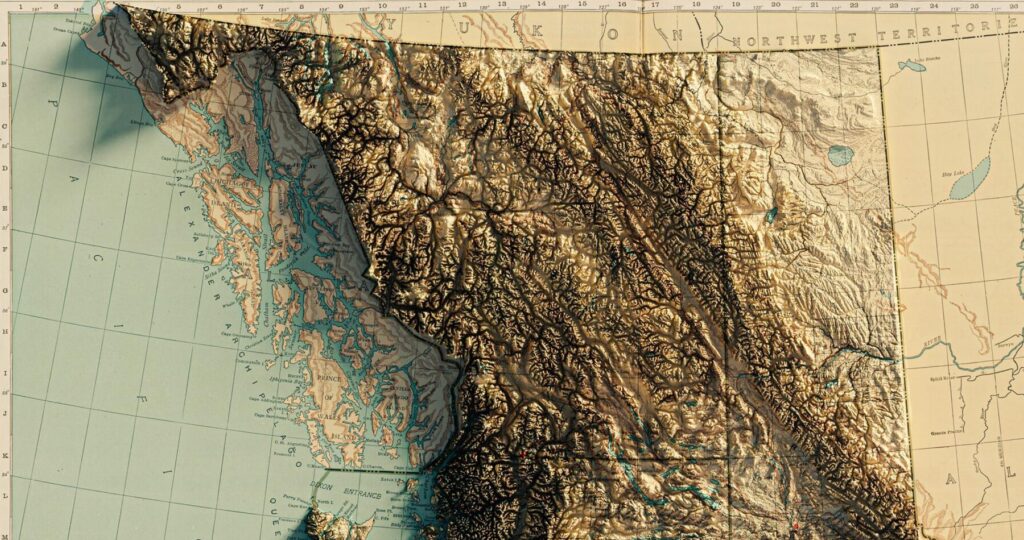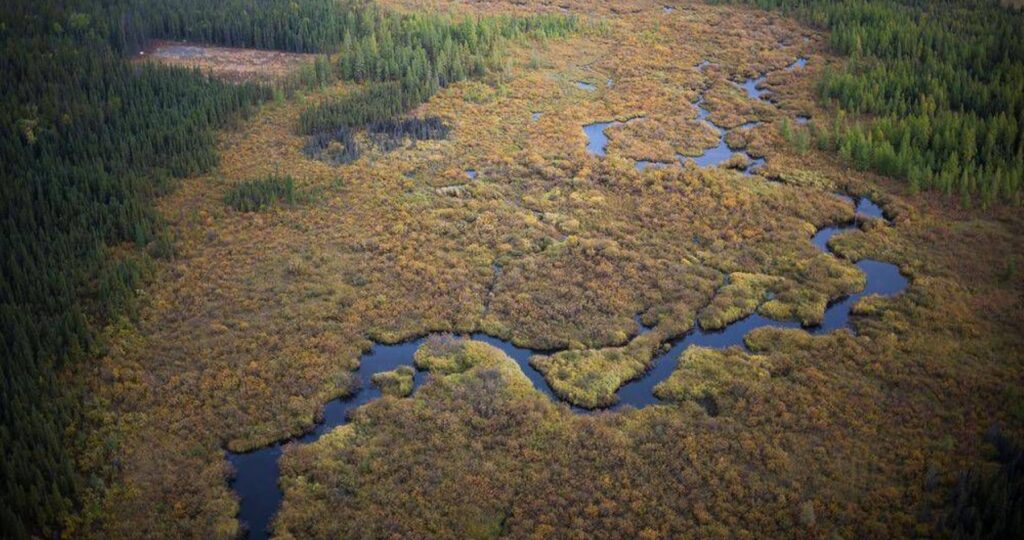Post Category : Field Life Special Finds
Find the Flake (Part 2!)
By Corey Cookson on December 11, 2017
While we always prefer to survey areas prior to any impacts, the identification of artifacts in post-impact contexts can be easier because of large areas of exposed sediments. Instead of targeted shovel tests that excavate a very small percentage of a high potential area, we can potentially see everything that is under the ground. However, the context of anything we find must be taken into account because heavy equipment can break cobbles and create things that look very similar to lithic debitage. If we find an artifact in the track of heavy machinery we need to be careful we are not misidentifying what we call a “tractorfact.”
In spring of 2017, we surveyed a proposed Associated Aggregates gravel pit that was being planned in a recently harvested cutblock . We identified several sites that were within the proposed gravel pit boundary, most of which were first identified by spotting artifacts on the ground. It’s not always easy, as vegetation can trick you into thinking you’ve found something, only to realize it was just a leaf.
If you want to try your eye, try to spot the flakes in the above picture!
How many did you find? Give up?
Keep scrolling for the answer…
It can be pretty difficult to spot because of the leaves on the ground but when you really take the time to look you can see five pieces of quartzite debitage.

Related Posts
By Fallon Hardie

May 19, 2025
Fight or Flight: Lessons Learned From a Cougar Encounter
While completing Historic Resource Impact Assessments in the Lower Eastern Foothills of Alberta sometime during the Summer of 2023, maybe mid-July or August, I experienced something statistically unlikely: a cougar encounter. Like any professional working in the wilderness, I have completed numerous Bear and Wildlife Awareness training courses over the years, all of which have
Keep ReadingBy Braedy Chapman

July 2, 2023
Top sites of 2022, BC edition
Field operations in British columbia 2022 marked Ember Archaeology’s first year of significant field operations in British Columbia. Our BC crews conducted a number of sizable wildfire-related projects for the BC Ministry of Forests over the course of the season, ultimately surveying hundreds of kilometers of constructed fireguards and fuel reduction developments. These were nearly
Keep ReadingTags: 100 Mile House | Anaheim Peak | Archaeology | Arrowstone Hills | Athapaskan | Baezaeko River | Biface | British Columbia | Cache Creek | Chilcotin | CRM | Dacite | Early Nesikep | Interior Plateau | Lehman Phase | Lithics | Maiden Creek | Nazko | obsidian | projectile point | Side notched | Sites
By Megan Williams

June 1, 2023
The Quarry of the Ancestors
Alberta Oil sands The Alberta oil sands has seen it’s fair share of media attention over the last few decades! Unfortunately, most of it has not been positive… In this blog, we are going to discuss an amazing archaeological discovery from the Alberta oil sands, and how these findings have shaped our knowledge about prehistory
Keep Reading